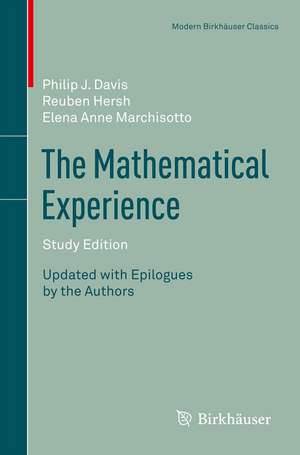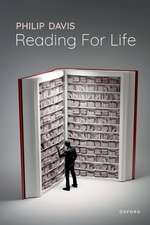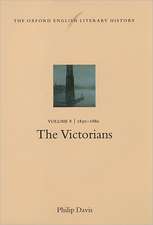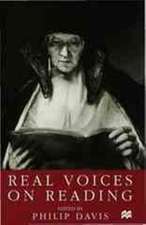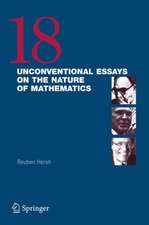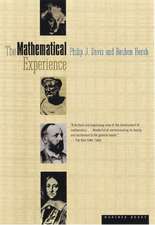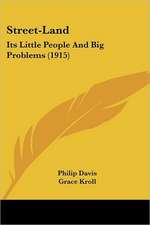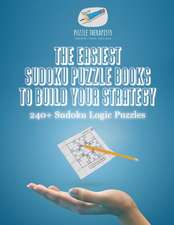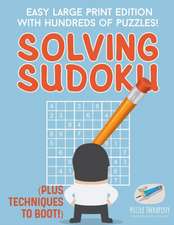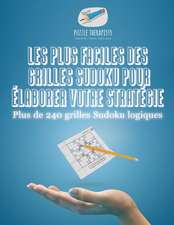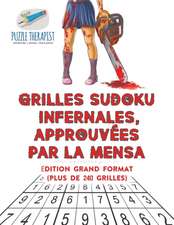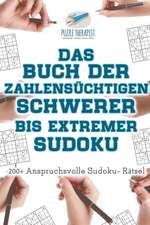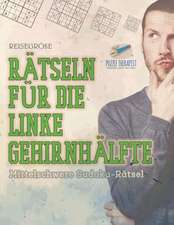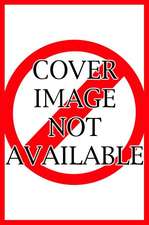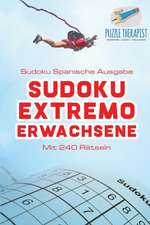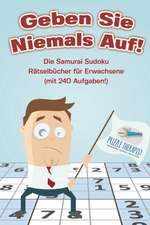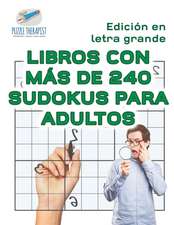The Mathematical Experience, Study Edition: Modern Birkhäuser Classics
Autor Philip Davis, Reuben Hersh, Elena Anne Marchisottoen Limba Engleză Paperback – 27 oct 2011
"…a perfectly marvelous book about the Queen of Sciences, from which one will get a real feeling for what mathematicians do and who they are. The exposition is clear and full of wit and humor..." - The New Yorker (1983 National Book Award edition)
Mathematics has been a human activity for thousands of years. Yet only a few people from the vast population of users are professional mathematicians, who create, teach, foster, and apply it in a variety of situations. The authors of this book believe that it should be possible for these professional mathematicians to explain to non-professionals what they do, what they say they are doing, and why the world should support them at it. They also believe that mathematics should be taught to non-mathematics majors in such a way as to instill an appreciation of the power and beauty of mathematics. Many people from around the world have told the authors that they have done precisely that with the first edition and they have encouraged publication of this revised edition complete with exercises for helping students to demonstrate their understanding. This edition of the book should find a new generation of general readers and students who would like to know what mathematics is all about. It will prove invaluable as a course text for a general mathematics appreciation course, one in which the student can combine an appreciation for the esthetics with some satisfying and revealing applications.
The text is ideal for 1) a GE course for Liberal Arts students 2) a Capstone course for perspective teachers 3) a writing course for mathematics teachers. A wealth of customizable online course materials for the book can be obtained from Elena Anne Marchisotto (elena.marchisotto@csun.edu) upon request.
Din seria Modern Birkhäuser Classics
- 8%
 Preț: 401.45 lei
Preț: 401.45 lei - 15%
 Preț: 468.12 lei
Preț: 468.12 lei -
 Preț: 477.66 lei
Preț: 477.66 lei - 15%
 Preț: 579.52 lei
Preț: 579.52 lei -
 Preț: 394.87 lei
Preț: 394.87 lei - 15%
 Preț: 469.09 lei
Preț: 469.09 lei - 20%
 Preț: 298.64 lei
Preț: 298.64 lei - 18%
 Preț: 747.20 lei
Preț: 747.20 lei - 15%
 Preț: 691.59 lei
Preț: 691.59 lei -
 Preț: 489.87 lei
Preț: 489.87 lei - 18%
 Preț: 785.11 lei
Preț: 785.11 lei -
 Preț: 390.08 lei
Preț: 390.08 lei - 15%
 Preț: 471.53 lei
Preț: 471.53 lei -
 Preț: 479.67 lei
Preț: 479.67 lei - 15%
 Preț: 534.17 lei
Preț: 534.17 lei - 15%
 Preț: 701.72 lei
Preț: 701.72 lei - 18%
 Preț: 792.34 lei
Preț: 792.34 lei - 15%
 Preț: 581.98 lei
Preț: 581.98 lei - 15%
 Preț: 639.41 lei
Preț: 639.41 lei - 15%
 Preț: 468.90 lei
Preț: 468.90 lei -
 Preț: 385.08 lei
Preț: 385.08 lei - 15%
 Preț: 540.89 lei
Preț: 540.89 lei - 18%
 Preț: 796.13 lei
Preț: 796.13 lei - 18%
 Preț: 904.60 lei
Preț: 904.60 lei - 15%
 Preț: 536.63 lei
Preț: 536.63 lei -
 Preț: 383.33 lei
Preț: 383.33 lei -
 Preț: 384.31 lei
Preț: 384.31 lei - 15%
 Preț: 689.28 lei
Preț: 689.28 lei - 15%
 Preț: 499.43 lei
Preț: 499.43 lei -
 Preț: 419.21 lei
Preț: 419.21 lei -
 Preț: 399.29 lei
Preț: 399.29 lei - 15%
 Preț: 578.01 lei
Preț: 578.01 lei - 15%
 Preț: 643.34 lei
Preț: 643.34 lei - 18%
 Preț: 732.70 lei
Preț: 732.70 lei -
 Preț: 394.51 lei
Preț: 394.51 lei -
 Preț: 458.19 lei
Preț: 458.19 lei -
 Preț: 386.39 lei
Preț: 386.39 lei - 15%
 Preț: 588.69 lei
Preț: 588.69 lei -
 Preț: 391.61 lei
Preț: 391.61 lei - 15%
 Preț: 578.24 lei
Preț: 578.24 lei - 15%
 Preț: 583.45 lei
Preț: 583.45 lei - 15%
 Preț: 501.06 lei
Preț: 501.06 lei - 20%
 Preț: 384.03 lei
Preț: 384.03 lei - 15%
 Preț: 594.89 lei
Preț: 594.89 lei -
 Preț: 453.60 lei
Preț: 453.60 lei - 18%
 Preț: 796.45 lei
Preț: 796.45 lei - 15%
 Preț: 694.55 lei
Preț: 694.55 lei - 15%
 Preț: 523.22 lei
Preț: 523.22 lei
Preț: 508.54 lei
Nou
Puncte Express: 763
Preț estimativ în valută:
97.32€ • 105.68$ • 81.75£
97.32€ • 105.68$ • 81.75£
Carte tipărită la comandă
Livrare economică 22 aprilie-06 mai
Preluare comenzi: 021 569.72.76
Specificații
ISBN-13: 9780817682941
ISBN-10: 0817682945
Pagini: 500
Ilustrații: XXV, 500 p. 139 illus.
Dimensiuni: 178 x 254 x 36 mm
Greutate: 0.91 kg
Ediția:2012. Updated with Epilogues by the Authors
Editura: Birkhäuser Boston
Colecția Birkhäuser
Seria Modern Birkhäuser Classics
Locul publicării:Boston, MA, United States
ISBN-10: 0817682945
Pagini: 500
Ilustrații: XXV, 500 p. 139 illus.
Dimensiuni: 178 x 254 x 36 mm
Greutate: 0.91 kg
Ediția:2012. Updated with Epilogues by the Authors
Editura: Birkhäuser Boston
Colecția Birkhäuser
Seria Modern Birkhäuser Classics
Locul publicării:Boston, MA, United States
Public țintă
Lower undergraduateCuprins
Preface.- Preface to the Study Edition.- Acknowledgements.- Introduction.- Overture.- 1. The Mathematical Landscape.- 2. Varieties of Mathematical Experience.- 3. Outer Issues.- 4. Inner Issues.- 5. Selected Topics in Mathematics.- 6. Teaching and Learning.- 7. From Certainty to Fallibility.- 8. Mathematical Reality.- Glossary.- Bibliography.- Index.- Epilogue.
Recenzii
From the reviews:
[The authors] have tried to provide a book usable in a course for liberal arts students and for future secondary teachers. They have done much more! This course should be required of every undergraduate major employing the mathematical sciences. It differs from the “mathematics appreciation” courses—courses that are merely a collection of amusing puzzles and toy problems giving an illusion of a mathematical encounter—presently found in many institutions. Students of this course are introduced to the context in which mathematics exists and the incredible magnitude of words devoted to communicating mathematics (hundreds of thousands of theorems each year). How much mathematics can there be? they are asked. Instructors in a “Mathematical Experience” course must be prepared to respond to questions from students concerning the fundamental nature of the whole mathematical enterprise. Stimulated by their reading of the text, students will ask about the underlying logical and philosophical issues, the role of mathematical methods and their origins, the substance of contemporary mathematical advances, the meaning of rigor and proof in mathematics, the role of computational mathematics, and issues of teaching and learning. How real is the conflict between “pure” mathematics, as represented by G.H. Hardy’s statements, and “applied” mathematics? they may ask. Are there other kinds of mathematics, neither pure nor applied? This edition of the book provides a source of problems, collateral readings, references, essay and project assignments, and discussion guides for the course. I believe that it is likely that this course would be a challenge to many teachers and students alike, especially those teachers and students who are willing to follow their curiosity beyond the confines of this book and follow up on the many references that are provided. —Notices of the AMS (Kenneth C. Millett)
This beautifully written book can be recommended to any cultivated person with a certain sophistication of thought, and also to the practicing mathematician who will find here a vantage point from which to make a tour d'horizon of his science. —Publ. Math. Debrecen
This is an unusual book, being more a book about mathematics than a mathematics book. It includes mathematical issues, but also questions from the philosophy of mathematics, the psychology of mathematical discovery, the history of mathematics, and biographies of mathematicians, in short, a book about the mathematical experience broadly considered… The book found its way into "Much for liberal arts students" courses and into education courses directed at future teachers. Term paper topics, essay assignments, problems, computer applications, and suggested readings are included. This new material should greatly enhance the usefulness of this very creative book. The range of topics covered is immense and the contents cannot easily be summarized. The book makes excellent casual reading, would make a good textbook, or could easily be used as a supplement to nearly any course concerned with mathematics. —Zentralblatt MATH
“This is a reprint of the 1995 edition … of a well-known and popular text. In a new edition, each of the authors added a brief essay in the end. … A warmly welcomed reprint of a very nice book that can be recommended for teaching, self-education, and simply as an entertaining reading.” (Svitlana P. Rogovchenko, Zentralblatt MATH, Vol. 1230, 2012)
“The Mathematical Experience is a very interesting read – it provides a highly personal tour through aspects of mathematics, its history, its philosophy, and its relationship with the ‘real’ world. As such it provides a nice glimpse into how two mathematicians thought about their discipline as of some 30 years ago. … a worthy addition to the librariesof mathematicians interested in the scope and nature of our discipline. … I really enjoyed reading The Mathematical Experience and would recommend it for college and personal libraries.” (Richard J. Wilders, The Mathematical Association of America, March, 2012)
[The authors] have tried to provide a book usable in a course for liberal arts students and for future secondary teachers. They have done much more! This course should be required of every undergraduate major employing the mathematical sciences. It differs from the “mathematics appreciation” courses—courses that are merely a collection of amusing puzzles and toy problems giving an illusion of a mathematical encounter—presently found in many institutions. Students of this course are introduced to the context in which mathematics exists and the incredible magnitude of words devoted to communicating mathematics (hundreds of thousands of theorems each year). How much mathematics can there be? they are asked. Instructors in a “Mathematical Experience” course must be prepared to respond to questions from students concerning the fundamental nature of the whole mathematical enterprise. Stimulated by their reading of the text, students will ask about the underlying logical and philosophical issues, the role of mathematical methods and their origins, the substance of contemporary mathematical advances, the meaning of rigor and proof in mathematics, the role of computational mathematics, and issues of teaching and learning. How real is the conflict between “pure” mathematics, as represented by G.H. Hardy’s statements, and “applied” mathematics? they may ask. Are there other kinds of mathematics, neither pure nor applied? This edition of the book provides a source of problems, collateral readings, references, essay and project assignments, and discussion guides for the course. I believe that it is likely that this course would be a challenge to many teachers and students alike, especially those teachers and students who are willing to follow their curiosity beyond the confines of this book and follow up on the many references that are provided. —Notices of the AMS (Kenneth C. Millett)
This beautifully written book can be recommended to any cultivated person with a certain sophistication of thought, and also to the practicing mathematician who will find here a vantage point from which to make a tour d'horizon of his science. —Publ. Math. Debrecen
This is an unusual book, being more a book about mathematics than a mathematics book. It includes mathematical issues, but also questions from the philosophy of mathematics, the psychology of mathematical discovery, the history of mathematics, and biographies of mathematicians, in short, a book about the mathematical experience broadly considered… The book found its way into "Much for liberal arts students" courses and into education courses directed at future teachers. Term paper topics, essay assignments, problems, computer applications, and suggested readings are included. This new material should greatly enhance the usefulness of this very creative book. The range of topics covered is immense and the contents cannot easily be summarized. The book makes excellent casual reading, would make a good textbook, or could easily be used as a supplement to nearly any course concerned with mathematics. —Zentralblatt MATH
“This is a reprint of the 1995 edition … of a well-known and popular text. In a new edition, each of the authors added a brief essay in the end. … A warmly welcomed reprint of a very nice book that can be recommended for teaching, self-education, and simply as an entertaining reading.” (Svitlana P. Rogovchenko, Zentralblatt MATH, Vol. 1230, 2012)
“The Mathematical Experience is a very interesting read – it provides a highly personal tour through aspects of mathematics, its history, its philosophy, and its relationship with the ‘real’ world. As such it provides a nice glimpse into how two mathematicians thought about their discipline as of some 30 years ago. … a worthy addition to the librariesof mathematicians interested in the scope and nature of our discipline. … I really enjoyed reading The Mathematical Experience and would recommend it for college and personal libraries.” (Richard J. Wilders, The Mathematical Association of America, March, 2012)
Textul de pe ultima copertă
Winner of the 1983 National Book Award, The Mathematical Experience presented a highly insightful overview of mathematics that effectively conveyed its power and beauty to a large audience of mathematicians and non-mathematicians alike. The study edition of the work followed about a decade later, supplementing the original material of the book with exercises to provide a self-contained treatment usable for the classroom.
This softcover version reproduces the study edition and includes epilogues by the three original authors to reflect on the book's content 15 years after its publication, and to demonstrate its continued applicability to the classroom. Moreover, The Companion Guide to the Mathematical Experience—originally published and sold separately—is freely available online to instructors who use the work, further enhancing its pedagogical value and making it an exceptionally useful and accessible resource for a wide range of lower-level courses in mathematics and mathematics education.
A wealth of customizable online course materials for the book can be obtained from Elena Anne Marchisotto (elena.marchisotto@csun.edu) upon request.
Reviews
[The authors] have tried to provide a book usable in a course for liberal arts students and for future secondary teachers. They have done much more! This course should be required of every undergraduate major employing the mathematical sciences. It differs from the “mathematics appreciation” courses—courses that are merely a collection of amusing puzzles and toy problems giving an illusion of a mathematical encounter—presently found in many institutions. Students of this course are introduced to the context in which mathematics exists and the incredible magnitude of words devoted to communicating mathematics (hundreds of thousands of theoremseach year). How much mathematics can there be? they are asked. Instructors in a “Mathematical Experience” course must be prepared to respond to questions from students concerning the fundamental nature of the whole mathematical enterprise. Stimulated by their reading of the text, students will ask about the underlying logical and philosophical issues, the role of mathematical methods and their origins, the substance of contemporary mathematical advances, the meaning of rigor and proof in mathematics, the role of computational mathematics, and issues of teaching and learning. How real is the conflict between “pure” mathematics, as represented by G.H. Hardy’s statements, and “applied” mathematics? they may ask. Are there other kinds of mathematics, neither pure nor applied? This edition of the book provides a source of problems, collateral readings, references, essay and project assignments, and discussion guides for the course. I believe that it is likely that this course would be a challenge to many teachers and students alike, especially those teachers and students who are willing to follow their curiosity beyond the confines of this book and follow up on the many references that are provided. —Notices of the AMS (Kenneth C. Millett)
This beautifully written book can be recommended to any cultivated person with a certain sophistication of thought, and also to the practicing mathematician who will find here a vantage point from which to make a tour d'horizon of his science. —Publ. Math. Debrecen
This is an unusual book, being more a book about mathematics than a mathematics book. It includes mathematical issues, but also questions from the philosophy of mathematics, the psychology of mathematical discovery, the history of mathematics, and biographies of mathematicians, in short, a bookabout the mathematical experience broadly considered… The book found its way into "Much for liberal arts students" courses and into education courses directed at future teachers. Term paper topics, essay assignments, problems, computer applications, and suggested readings are included. This new material should greatly enhance the usefulness of this very creative book. The range of topics covered is immense and the contents cannot easily be summarized. The book makes excellent casual reading, would make a good textbook, or could easily be used as a supplement to nearly any course concerned with mathematics. —Zentralblatt MATH
This softcover version reproduces the study edition and includes epilogues by the three original authors to reflect on the book's content 15 years after its publication, and to demonstrate its continued applicability to the classroom. Moreover, The Companion Guide to the Mathematical Experience—originally published and sold separately—is freely available online to instructors who use the work, further enhancing its pedagogical value and making it an exceptionally useful and accessible resource for a wide range of lower-level courses in mathematics and mathematics education.
A wealth of customizable online course materials for the book can be obtained from Elena Anne Marchisotto (elena.marchisotto@csun.edu) upon request.
Reviews
[The authors] have tried to provide a book usable in a course for liberal arts students and for future secondary teachers. They have done much more! This course should be required of every undergraduate major employing the mathematical sciences. It differs from the “mathematics appreciation” courses—courses that are merely a collection of amusing puzzles and toy problems giving an illusion of a mathematical encounter—presently found in many institutions. Students of this course are introduced to the context in which mathematics exists and the incredible magnitude of words devoted to communicating mathematics (hundreds of thousands of theoremseach year). How much mathematics can there be? they are asked. Instructors in a “Mathematical Experience” course must be prepared to respond to questions from students concerning the fundamental nature of the whole mathematical enterprise. Stimulated by their reading of the text, students will ask about the underlying logical and philosophical issues, the role of mathematical methods and their origins, the substance of contemporary mathematical advances, the meaning of rigor and proof in mathematics, the role of computational mathematics, and issues of teaching and learning. How real is the conflict between “pure” mathematics, as represented by G.H. Hardy’s statements, and “applied” mathematics? they may ask. Are there other kinds of mathematics, neither pure nor applied? This edition of the book provides a source of problems, collateral readings, references, essay and project assignments, and discussion guides for the course. I believe that it is likely that this course would be a challenge to many teachers and students alike, especially those teachers and students who are willing to follow their curiosity beyond the confines of this book and follow up on the many references that are provided. —Notices of the AMS (Kenneth C. Millett)
This beautifully written book can be recommended to any cultivated person with a certain sophistication of thought, and also to the practicing mathematician who will find here a vantage point from which to make a tour d'horizon of his science. —Publ. Math. Debrecen
This is an unusual book, being more a book about mathematics than a mathematics book. It includes mathematical issues, but also questions from the philosophy of mathematics, the psychology of mathematical discovery, the history of mathematics, and biographies of mathematicians, in short, a bookabout the mathematical experience broadly considered… The book found its way into "Much for liberal arts students" courses and into education courses directed at future teachers. Term paper topics, essay assignments, problems, computer applications, and suggested readings are included. This new material should greatly enhance the usefulness of this very creative book. The range of topics covered is immense and the contents cannot easily be summarized. The book makes excellent casual reading, would make a good textbook, or could easily be used as a supplement to nearly any course concerned with mathematics. —Zentralblatt MATH
Caracteristici
Expanded softcover reprint of a highly original and fascinating look at the world of mathematics Includes new epilogues written by the three authors, tying content to the modern state of mathematics Outstanding text for illuminating the study of math to an audience of non-mathematicians Contains a wealth of exercises to help students and educators investigate the nature and purpose of mathematics The Companion Guide to the Mathematical Experience—originally published and sold separately—is freely available online to instructors who use the work Includes supplementary material: sn.pub/extras
